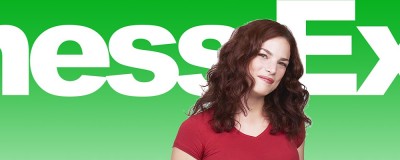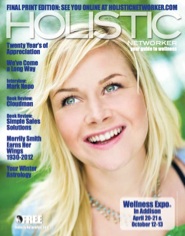All parents hope their children will grow up to be responsible adults. Do you ever consider what the word “responsible” actually means? My favorite definition is “the ability to respond.” Most people are able to respond to challenges at home, at work, and in their community. Broaden the domain, and the picture gets fuzzy. Are you a responsible Texan? American? Earthling? Is it enough to vote regularly and hope that the powers that be are looking out for you, your family, and your descendants? I think not.
To whom are we entrusting the stewardship of this planet?
Look carefully at the fabric of our civilization and you’ll notice how easily we transfer responsibility for the basic essentials of life to third parties. Thanks to technological progress, life has become especially convenient for anyone with a checkbook or credit card. Take inventory of your basic needs: food, water, healthcare, education. How many of these do you personally provide for your family? As little as three generations ago, your ancestors dug a well, harvested food, applied basic health remedies, and taught their children. They were directly responsible for the quality of their life.
Thanks to a vast technological infrastructure (factories, trains, planes, computers, and modems) most North Americans live a life far more luxurious than royalty of the 19th century. However, this infrastructure may experience a disruption on January 1, 2000 by a computer bug called the “year 2000 problem” (millions of programs that cannot calculate dates after “1999”). This situation brings to light our critical dependency on countless microprocessors, software, and programmers. At this time it’s too early to know what will happen, but observe your own reaction to discussion of the topic. Do you feel that it’s “much ado about nothing”? Are you researching the situation? Are you packing up for the country? Your response to the year 2000 problem is simply an indicator of your level of responsibility —your “ability to respond” to a unique situation.
We entrust our city with water service, the media with our information needs, and a vast chain of unknown suppliers for the very food we eat. (By the way, did you know you’re already eating genetically-engineered food?) We entrust critical health decisions to committees of experts and government agencies. We listen to the “experts,” the talking heads on TV, and convince ourselves that everything is OK in our world. We feel that most problems are “somewhere else.” When we respond to a situation it’s often only to rally our neighbors to ensure nimby (not-in-my-back-yard). Just a few months ago it became clear to me that nimby does not work on our small planet. Smoke from fires in Mexico blanketed our sky and forced many people indoors. If a problem exists on the planet, then it potentially affects every one of us, directly or indirectly.
Our world is riddled with pollution, disease, famine, overpopulation, conflict, and injustice — problems that require real solutions. Do you feel uncomfortable leaving these problems to the “experts?” Are you unsure if “someone out there” is working on solutions? Do you wonder if corporate interests will undermine what’s best for the environment and your health? Entertain these questions and you can begin to feel powerless in the face of looming crises—align yourself with other concerned beings and you’ll find the strength you’ll need to enact positive change.
Overcoming the current crises and evolving into an enlightened civilization will take alignment, determination, and most importantly — a shared belief that it’s possible. Our society is in its collective adolescence. The first step toward adulthood is to expand our sphere of responsibility to include the entire planet and its residents. It begins with a change of heart—in the words of Dannion Brinkley, “know that you are a powerful spiritual being.” Get in touch with your life mission and carry it out with enthusiasm. There is no greater gift you can give the world. Your parents would be proud.
Tony Cecala,
Publisher, The Holistic Networker
©1998, Tony Cecala
About Tony Cecala
Tony is a business strategist. He publishes the Holistic Networker and produces the Wellness Expo. In his spare time he reads about technology and the mind.
- Web |
- Flickr |
- More Posts(165)










